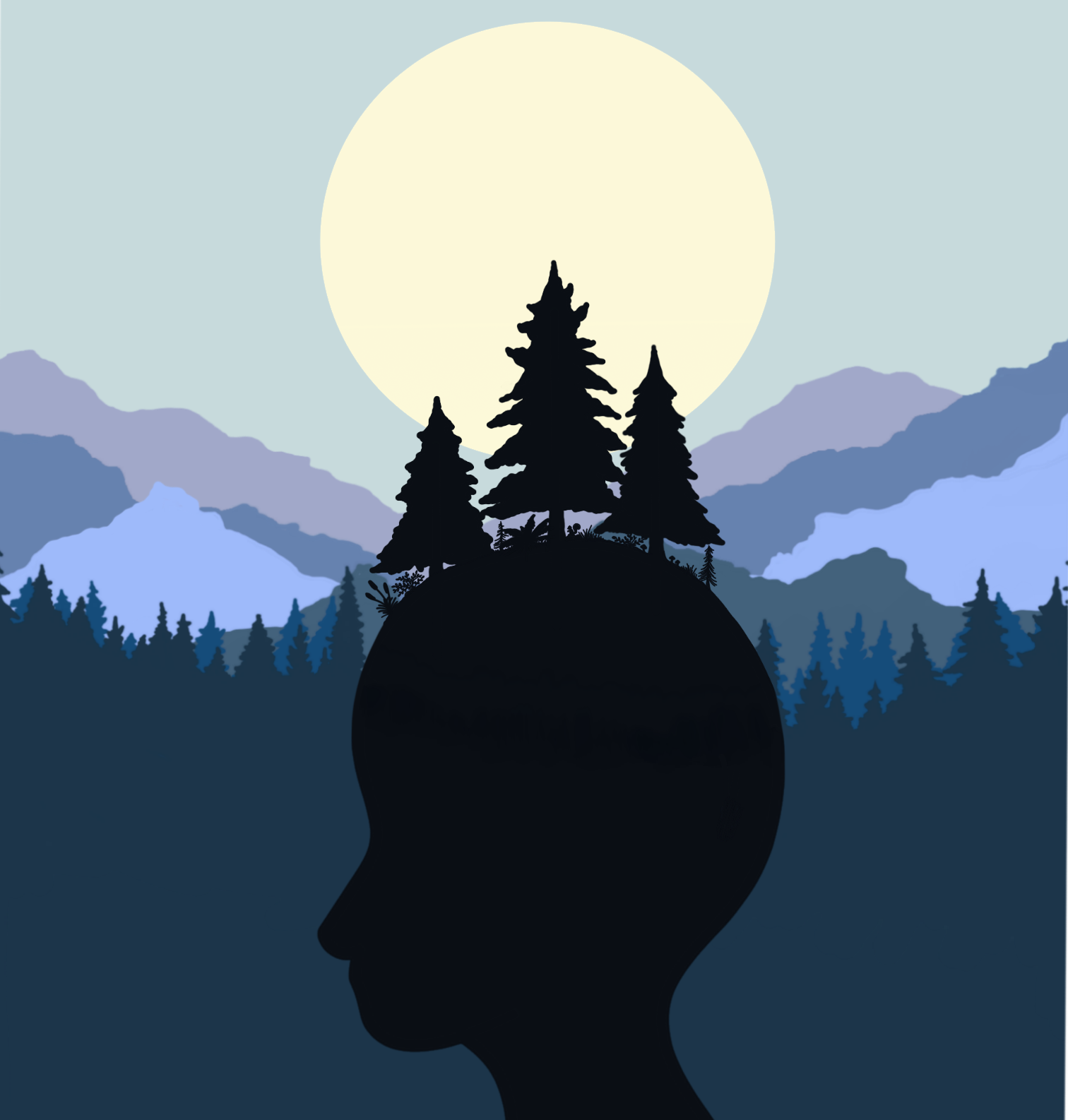
There is one free treatment for stress that everyone should be using this finals season: nature.
It may seem counterintuitive to take a break with so much on your plate, but studies show that excursions in nature are effective in lowering stress levels. This stress relief may ultimately make you more productive in the long run and enhance your sense of well-being.
According to a study published in Frontiers in Psychology, a nature experience lasting between 20 to 30 minutes is the most effective way to lower salivary cortisol and alpha- amylase, two biomarkers of stress. Cortisol response was not affected by the activity type. You can receive the benefits of the nature-centered experiences whether you are walking, running or sitting.
According to the National Parks Service, activity in nature, whether leisurely or intense, can improve long and short-term memory and cognitive control. They also say that a five-minute walk in green space can improve mood and promote relaxation. When it comes to getting the most out of your time, whether you are about to embark on a study marathon or crank out multiple pages of an essay, try to immerse yourself in some of the green spaces that surround campus first.
Associate Professor of Psychology Erik Nilsen teaches an advanced cognition class that has a section which focuses on the cognitive benefits of walking in nature.
“There is all sorts of research and evidence about the benefits of being in nature well beyond psychology, but my areas of expertise focus on the cognitive and emotional benefits of being in nature,” Nilsen said. “There is a theory in cognitive psychology called ‘ART’ which stands for Attention Restoration Theory that suggests walking in a natural setting can increase and recharge your attentional abilities by having this relaxed sense of awareness.”
Along with teaching students about the benefits of nature, Nilsen also is a practitioner of ART. He goes on a three mile walk to campus every day that takes him through Marshall Park or Tryon Creek State Natural Area. To demonstrate the long ranging benefits of nature, Nilsen mentioned a study that found hospital patients with rooms that overlook green areas recover quicker and require less pain medication than those with rooms who overlook urban environments.
When it is cold and raining as it often is in Portland, getting outdoors can feel like a drag. For some students, accessibility poses an issue when immersing yourself in nature.
“On your computer if you just have your background be natural or your screensaver be natural scenes, that has benefits,” Nilsen said. “I personally recommend going to Tryon and walking, but if you can’t, have your screensaver as a natural setting—it has statistically significant benefits to your well-being.”
Apart from screensavers, a study published by the International Journal of Environmental Research and Public Health found that videos of nature can improve the mental and social well-being of the general population. Whether you decide to take a stroll through one of the many natural areas around campus or watch a video of nature, take some time this finals season to keep your stress down and your mood up.
Subscribe to the Mossy Log Newsletter
Stay up to date with the goings-on at Lewis & Clark! Get the top stories or your favorite section delivered to your inbox whenever we release a new issue.

Leave a Reply